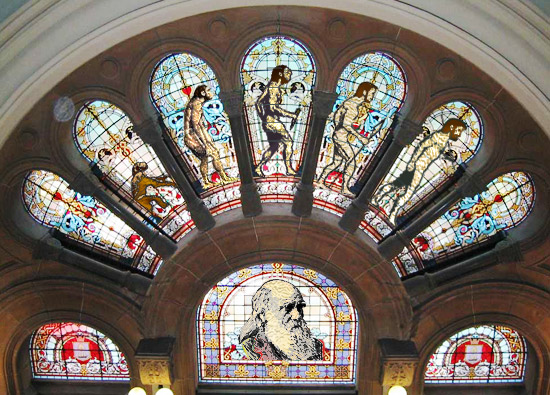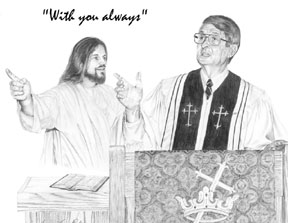Yesterday, Totila and I had a brief discussion concerning authority. It's a subject which, many of you know, has continued to intrigue me for a while. I find it to be rather Important for living out the Kingdom. So Totila forwarded this to be from Wayne Jacobsen's blog. Totila's comments are under that.
-------------
Sara and I have been reading “What Jesus Meant” by Garry Wills, a Catholic who is Professor of History Emeritus at Northwestern University. I have mixed feelings about the book, but love what we read this morning.
Here are some quotes from his chapter on Heavenly reign:
(In reference to Jesus’ statement, “the first will be last and the last will be first:) The antihierarchical last sentence shows that the symbolic-prophetic meaning of the Twelve has nothing to do with church governance below. The biblical scholar John Meier concludes that Jesus gave his movement no authority structure.”
“But what of Peter? Did not Jesus found his church on Peter…? The Catholic scholar Raymond Brown wrote, “Peter never served as the bishop or local administrator of any church, Antioch and Rome included.”
The idea that Peter was given some special power that could be handed on to a successor runs into the problem that he had no successor. The idea that there is an ‘apostolic succession’ to Peter’s fictional episcopacy did not arise for several centuries at which time Peter and others were retrospectively called bishops of Rome to create an imagined succession.
Jesus said, “Where two or three are met together in my name, there I am in their midst: (Matt 18:20). Why do (any of us) met together in Jesus’ name need a bishop from Rome when they have Jesus in their midst?
He goes on to talk about Jesus’ establishing heaven’s reign on earth, not through our hierarchical religious institutions, but through the presence of the Risen Lord. Jesus equates heaven’s reign with his personal presence, and that in groups of twos and threes.
And all of this is from a Catholic! Amazing. I forget who recommended this book to me, and while it does have a few problems, it is as incisive a book about the life of Jesus as I’ve read. The presumptuous title aside, I think he does peel back a lot of the religious veneer we have laid over Christ and gets to the heart of why he came and what he wanted to instill in his people. I think I’ve enjoyed it more than Sara, but it is a good read.
------------------
It seemed really apropos the conversation we had about authority. I think it is right on. I also greatly believe in the authority of those God has placed in the church, I just think it looks really different from what the "system" thinks. Pretty much invisible. But then, I think the whole church is invisible for the most part, except for where Jesus likens it to a city set on a hill.
------------------
Back to Stevie's voice. Yeah, I've gotten to the point where, if anybody suggests that they have authority, I immediately suspect that they don't. When authority is mixed with control (that is to say, when someone invokes that word to get their way) it becomes demonic and anti-Kingdom ("You know that those who are regarded as rulers of the Gentiles lord it over them, and their high officials exercise authority over them"). True Authority, I think, is a kind of anointing: I'll know you have it by the fruit of your words and life, not by you trumpeting your possession of it. And, as I've said before, authority is not the power to demand your way, it is the right to serve others. The shepherd's authority IS his sleeping on hillsides, being covered with dew every morning when he wakes, having a rock as a pillow, and eating what he can find on the countryside. His authority isn't proven when he pulls out that staff to correct a sheep (which he SO RARELY uses), it's proven in lonely nights and doubtful days, when he offers his life an offering for those sheep he loves.
I hear people talk about Organization in the Kingdom as a way to justify the power they're garnering for themselves. "Well, an Apostle has to be in charge, and I'm only ensuring that I'm still in charge." Yikes. I'll be standing over here. "There must be Order in the church, and we think it should look like THIS. So we'll enforce our Order." Again, yikes. Aren't these the kind of things that humans shouldn't really touch? I think they are. I think apostles and prophets have a vision for what it might could look like, but they're going to be Super Loathe to wrestle people into that shape. They serve, and expect the Spirit to work out the details. The scripture says "...God has arranged the parts in the body, every one of them, just as he wanted them to be..." Let's continue to leave that work to Him, shall we?
The Kingdom is a level playing field. There's no points for tenure. Or Agressive Personality. Or Bible Knowledge. If anything, humility (i.e., having been with Jesus) is what gets you status in the kingdom, but of course the humble would never want that status. They see it as something dangerous, almost--something to be considered with dread. I keep thinking of Galadriel, who 'passed the test' by FORGOING the Ring of Power which Frodo freely offered her in the forest. That's quite a picture, there. She was offered some of the greatest authority known, and by passing it up, she proved herself as Wise and Worthy to be Followed.
But it's all a bit too secretive, isn't it? If these people who possess this True Authority are never recognized in a worldly way, how can we ever find them? For heaven's sake, are we going to require that the Spirit of God UNCOVER them for us in some way?












